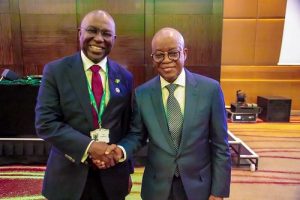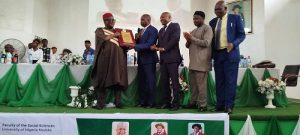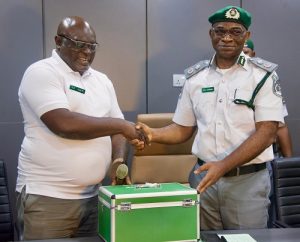Poor Infrastructure Robbed Nigeria of Transshipment Hub Status in West Africa, Laments Buhari

*Says foreign loans targeted at addressing infrastructure
President Muhammadu Buhari Tuesday expressed regret that lack of infrastructure robbed Nigeria of attaining the status of transshipment hub in the West African sub-region.
Buhari explained his administration has been borrowing foreign loans mainly to address critical infrastructure, such as roads and rail.
According to him, once these infrastructure are fixed, the country will be in a position to attract more foreign investments.
The President added that the infrastructure issue was affecting the country from having the status of being the West African hub for transshipment of goods and air cargo transportation.
The President who spoke during a virtual meeting with members of the Presidential Economic Advisory Council (PEAC), said what his administration was doing was in the interest of the country.
In a statement issued by the presidential spokesman, Malam Garba Shehu, Buhari said his interest in fixing the road was mainly to save lives from being lost on road accidents.
The statement reads : “We have so many challenges with infrastructure. We just have to take loans to do roads, rail and power, so that investors will find us attractive and come here to put their money.’’
He regretted that the collapse of the oil market has also dealt a big blow to the country as it has no option than to obey the quota regime of the Organisation of the Petroleum Exporting Countries (OPEC).
He said, “We have to accept that decision; otherwise they (Middle-East producers) can flood the market and make the product unviable. So, we have cooperated with what we get. With oil, we are in a difficult situation. The politics of oil is that the less you produce, the less you earn.”
Buhari pointed out that the decision of his administration to invest in agriculture has helped in reducing poverty and joblessness.
He said, “For us to bounce back to productivity, especially in agriculture, the unemployed with many of them uneducated had to be persuaded to go into agriculture.
‘‘If we hadn’t gone back to the lands, we would have been in trouble by now. That is why we virtually stopped the importation of food thereby saving jobs and foreign exchange” .
The council Chairman, Professor Doyin Salami, was said to have promised on behalf of his members to issue a policy paper that can assist the government in achieving desired goals.





